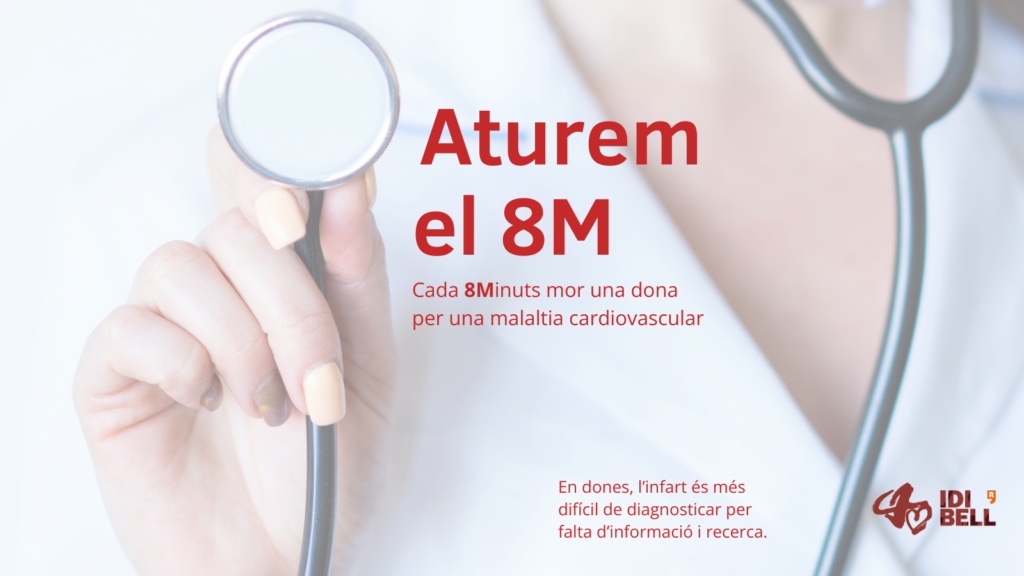This 8M, IDIBELL wants to focus on cardiovascular diseases in women. Cardiovascular diseases are considered the leading cause of death in women in Spain, ahead of breast cancer. In fact, it is estimated that in the state every 8 minutes a woman dies of cardiovascular disease. However, this type of disease continues to be under-diagnosed due to a number of factors that demonstrate the existence of a gender bias in medicine that has yet to be overcome.
The lack of specificity in diagnosis remains one of the most significant stumbling blocks, and myocardial infarction is a paradigmatic example. The clinical manifestation of infarcts in women is slightly different from that in men and they present with additional symptoms, such as nausea, headache and dizziness, which are more intense than in men. Ignorance of these differences and the existence of accompanying symptoms complicate and delay diagnosis, as the problem is not identified and is often confused with anxiety or stress. In addition, it has been found that women tend to minimise symptoms and take longer to go to hospital, arriving when they are already in heart failure. Taken together, this results in them receiving treatment much later than normal.
Part of the lack of knowledge of female cardiovascular disease is due to a lack of research into these diseases in women. In the 1990s, it became apparent that there was an unconscious bias in research programmes and clinical trials, which tended to recruit all-male cohorts and assumed that the results could be extrapolated to women. This bias has been corrected in recent years, but in the field of prevention there is still a lack of emphasis on the study of risk factors that are particularly important for women (such as gestational diabetes, premature birth or menopause).
For all these reasons, it is necessary to strengthen biomedical research into cardiovascular pathology in women, to train professionals in the identification and differentiation of symptoms in women, and to give greater importance to symptoms of cardiovascular diseases that are normally related to stress or anxiety. In this sense, it is not only necessary to influence professionals, but it is also key to promote self-care and the recognition of these symptoms among women in order to encourage them to go to hospital earlier and prevent their worsening.
Precisely, this focus on prevention is the one followed by the Research Group on Cardiovascular Diseases (BIO-HEART) of IDIBELL and Bellvitge University Hospital, which, among others, works on the implementation of artificial intelligence tools to develop integrative preventive strategies for cardiovascular diseases. In the field of gender bias correction, IDIBELL and HUB researchers Cristina Enjuanes and Oona Meroño lead a project, funded by La Marató de 3Cat, which addresses gender differences in women’s access to rehabilitation programmes after acute coronary syndrome. This study will help to design personalised strategies for women to have equal access to therapeutic interventions from which they are now often excluded.
The Bellvitge Biomedical Research Institute (IDIBELL) is a biomedical research center created in 2004. It is participated by the Bellvitge University Hospital and the Viladecans Hospital of the Catalan Institute of Health, the Catalan Institute of Oncology, the University of Barcelona and the City Council of L’Hospitalet de Llobregat.
IDIBELL is a member of the Campus of International Excellence of the University of Barcelona HUBc and is part of the CERCA institution of the Generalitat de Catalunya. In 2009 it became one of the first five Spanish research centers accredited as a health research institute by the Carlos III Health Institute. In addition, it is part of the “HR Excellence in Research” program of the European Union and is a member of EATRIS and REGIC. Since 2018, IDIBELL has been an Accredited Center of the AECC Scientific Foundation (FCAECC).

